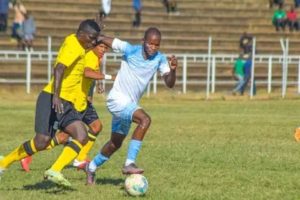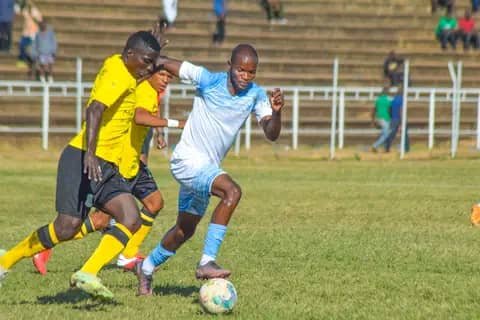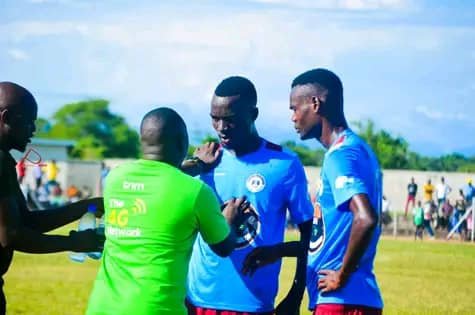By Staff Reporter
Stain Davie scored his seventh goal this season for Silver Strikers as they beat Kamuzu Barracks 1-0 to go top of the league.
Davie broke the deadlock 20 minutes in the first half with a simple tap in after Kamuzu Barracks goalkeeper blocked Chimwemwe Idana’s first attempt .

After the match, Idana who was voted Silver’s best player last month, was voted man of the match.
The win means that the central bankers have now accumulated 18 points from eight games, just a point above defending champions Nyasa Big Bullets and third placed Mighty Mukuru Wanderers
In Karonga, Mighty Mukuru Wanderers scored a goal in each half to claim a 2-1 win against Karonga United.

Defender Lawrence Chaziya scored the earliest goal for the visitors as he headed home a Stanley Sanudi well taken free kick just 2 minutes into the game.
The home side leveled the scores six minutes in the second half through Alfred Chizinga who capitalized on defensive blunder by Chaziya.
Isaac Kaliati scored the winning goal for the Nomads with brilliant free kick 65 minutes in the second half to ensure maximum points for the Lali-Lubani boys.
After the match, Karonga United captain Eric Atsiga was voted man of the match.
The win mean that Wanderers are now level on 17 points with city rivals FCB Nyasa Big Bullets but the People’s team have a superior goal difference.
At Mpira Stadium in Blantyre, an early goal from Mphatso Magaleta was enough to grant Ekwendeni Hammers maximum points as they beat Mighty Tigers 1-0
Magaleta who is on loan to the northern region outfit from Nyasa Big Bullets, scored after capitalizing on a defensive lapse in Tigers defense just three minutes in the first half.
Elsewhere, Dedza Dynamos beat Civil Service United 2-1 in an entertaining match played at Dedza Stadium.
Edward Dakalira and Clement Nyondo were on target for the home side while Muhammad Biason scored the consolation for the visitors.
Below is the TN Super League fixture for next weekend
SATURDAY/10 JUNE/2023
Extreme FC 🆚 Mighty Mukuru Wanderers @Civo Stadium
Nyasa Big Bullets 🆚 Ekwendeni Hammers @ Kamuzu Stadium
Karonga United 🆚 Mighty Tigers @Karonga Stadium
Kamuzu Barracks 🆚 Bangwe All Stars @ Champion Stadium
SUNDAY/11 JUNE/2023
Silver Strikers 🆚 Mafco FC @ Bingu National Stadium
Blue Eagles 🆚 Civil Service United @ Nankhaka Stadium
Red Lions 🆚 Chitipa United @ Balaka Stadium
Moyale Barracks 🆚 Dedza Dynamos @ Mzuzu Stadium











